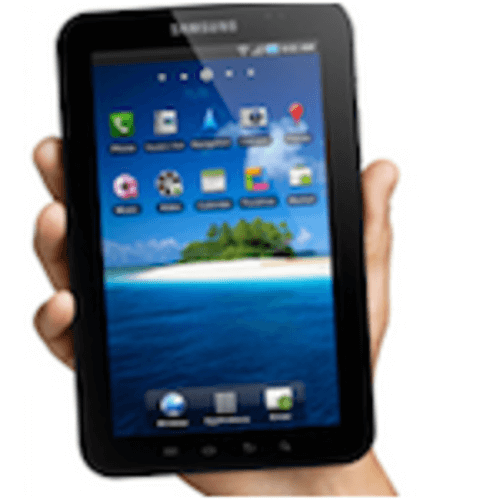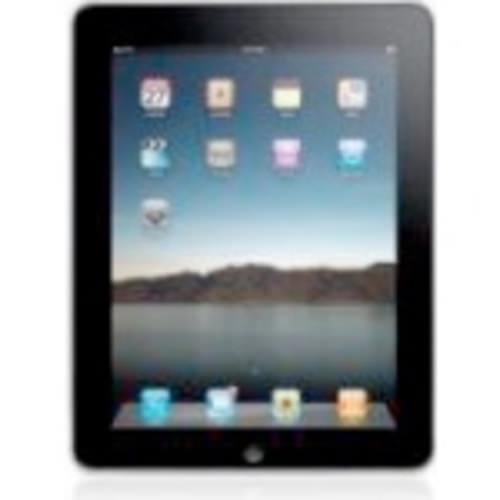A recent report from Strategy Analytics stated that the Apple iPad lost a good bit of tablet market share to Android-based tablet computers, dropping from 96% to 75% in the fourth quarter. As it turned out, however, the numbers the analysts were basing their findings off of were incorrect.

As revealed by Samsung VP Lee Young-hee on the company’s earnings call last Friday (and subsequently reported by The Wall St. Journal), the number of Samsung Galaxy Tab sales were not “2 million,” as the company had touted earlier this year – that was how many devices had been shipped to distributors.
According to The WSJ, the full quote from Lee Young-hee is as follows, in responding to an analyst’s question about Galaxy Tab sales:
“Well, your question was on sell-in and sell-out*. As you heard, our sell-in was quite aggressive and this first quarterly result was quite, you know, fourth-quarter unit [figure] was around two million. Then, in terms of sell-out, we also believe it was quite smooth. We believe, as the introduction of new device, it was required to have consumers invest in the device. So therefore, even though sell-out wasn’t as fast as we expected, we still believe sell-out was quite OK.”
*Sell-in means sales to distributors, while sell-out means sales to customers.
iPad Market Share Not Eroding as Fast as Previously Reported
The news regarding Galaxy Tab sales is important because this particular Android tablet was supposedly one of the more popular non-iPad devices on the market, given the figures Samsung was happily releasing in previous months. In December 2010, for example, Samsung had announced that Galaxy Tab sales had reached 1 million. In January, they had hit 2 million, Samsung had said. The assumption, of course, was that these were sales to customers since that’s what’s generally reported, not sales to distributors.

But Samsung had been fudging the numbers a little. By reporting these “sell-in” figures (sales to distributors) without clarifying that was the case, the manufacturer was making it sound as if the device was far more popular than it actually was.
The same scenario holds true for the Windows Phone 7 sales figures also recently announced – in December, Microsoft revealed that its partner handset manufacturers have sold over 1.5 million devices to carriers and retailers. Again, this wasn’t handsets sold to customers, but it was a big number and it sounded good to report. The difference is that in Microsoft’s case, the company was clear about the nature of these sales, while Samsung has been less upfront. The details were only revealed thanks to an analyst pressing the Samsung exec for more information on the earnings call.
That’s not to say that these numbers – both Microsoft’s and Samsung’s – don’t have at least some merit. It does mean that there’s industry interest in these new devices, and faith from retailers and distributors that the devices will sell.
The numbers don’t tell you anything about market share, though. And that means that the analyst report detailing iPad’s rapidly declining market share has been invalidated. The iPad, for now, is still doing just fine – 7.3 million iPads were sold last quarter, Apple reported in January. And almost 15 million were sold through the first three quarters, the company said.
Too Early for Android Tablet vs. iPad Comparisons?
Frankly, we think it’s a bit premature to start comparing Android tablet sales to iPad sales, since the tablet-ready of the Android operating system (Android OS 3.0, code-named “Honeycomb”) has not even left beta at this point. Google plans to show off more of Honeycomb’s features this week at a special press event, and will probably provide a solid launch date for Honeycomb at that time. At present, however, the Honeycomb mobile OS is not available on any devices in the retail sector, and therefore, is not in consumers’ hands yet.
Until consumers are using the first tablet-optimized version of Android, it’s unfair to position the iPad vs. these newer Android competitors. The version of the Android OS running on the Galaxy Tab, for instance, was not designed for tablets and is likely a factor in the device’s return rate of 16% (compared to the Verizon iPad return rate of 2%).
When Honeycomb actually debuts on devices consumers can purchase at their local Best Buy or other retail outlets, it will then be time to reevaluate the tablet OS market share figures.
Correction: The WSJ said that it had initially misquoted Samsung. Sales were “smooth,” not “small.” This has been removed from the article.
















